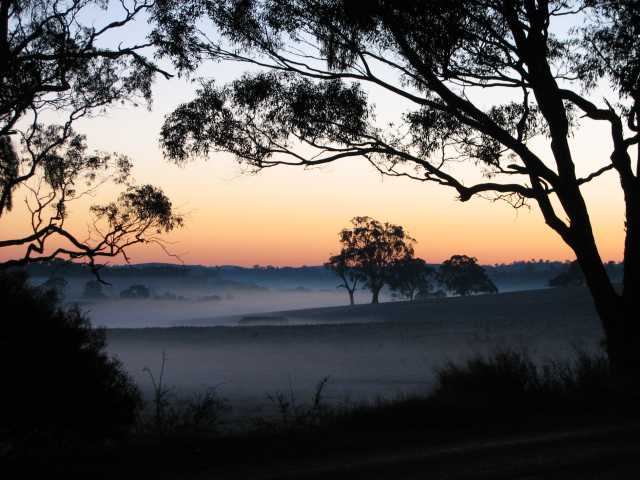Environment
|
Failure to give our environment the highest priority is due to short-term thinking.
I am intensely concerned about climate change and find the vast majority's apathy about it incredible. But I too must remember to look at the bigger picture: there was bound to be an environmental catastrophe sooner or later due to one thing or another, over-population, loss of soil fertility, unbalanced nitrogen cycle, loss of available phosphorus for fertiliser, deforestation, globalisation (as it has been practiced), pollution, etcetera. Man is destroying his environment with climate change, but while it will lead to the end of the form of Western civilisation that we have become familiar with over the past several hundred years, the world will go on. Since Humanity managed some form of domination over other species Man has always been his own worst enemy.
|
|
Global citizenship
We are all citizens of the Earth and we all have a responsibility toward the Earth. The climate change problem is caused by all of us; some, the biggest consumers, are more culpable than others.How many of us give much, or any, thought to the impact that we are personally having on the planet? We must learn to look at the bigger picture when we make day-to-day decisions. For example, before we buy a new appliance that might consume a large amount of electricity, we should think not only of how much it will increase our power bill, but its contribution to the global climate change problem; look at the bigger picture.
Changing public perception in this way will not be easy, but is probably necessary if we are to solve the greenhouse/climate change problem.
|
|
Genocide
There is no denying that the Nazi-lead genocide against the European Jews (commonly called The Holocaust) was a terrible thing, but let's look at the bigger picture, there have been many other genocides. For some reason we hear much more about the Holocaust, in which around six million Jews were killed, than the others.About twenty million Russians were killed in the Second World War. The Nazis seem to have hated communists just as much as they hated Jews, but we in the West hear little about this particular genocide.
Another genocide little recognised in the West (and denied in Turkey) was the Armenian Massacre in which something up to a million Armenians were killed due to decisions made by the "Young Turk" government of Turkey from 1915 to 1917.
King Leopold II of Belgium, almost incredibly to people of the twenty-first century, held the Congo Free State (approximately the modern state named the Democratic Republic of the Congo) as his personal property. His rule was cruel in the extreme, and he has been blamed for the deaths of millions of the natives during his reign, which spanned the years from 1865 to 1909. The Congo genocide is discussed on a page of Religious Tolerance. Wikipedia has a page on Atrocities in the Congo Free State.
In 1994 something between 200 000 and 500 000 Rwandans, most of them Tutsis, were murdered.
From 1975 to 1999 some 210 000, by an Amnesty International estimate, East Timorese were killed by Indonesian police and military following an invasion that the world chose to ignore at the time.
Then there were terrible genocides recorded in the Bible.
I have quoted a part of the record of one of these below.
Moses is talking to the commanders of the army of Israel. You can look up the whole reference at Bible Gateway.
The Bible, Numbers, Chapter 3115: "Have you allowed all the women to live?" he asked them. 16: "They were the ones who followed Balaam's advice and were the means of turning the Israelites away from the LORD in what happened at Peor, so that a plague struck the LORD's people. 17: Now kill all the boys. And kill every woman who has slept with a man, 18: but save for yourselves every girl who has never slept with a man. |
I find this frightening. Nobody could support such treatment of a whole ethnic group in the modern world and consider themselves to be ethical. The Bible is the holy book of a great many people; what Christians call the Old Testament is sacred to Jews and Moslems as well as Christians.
Similarly, the Bible records that Joshua had every man, woman and child murdered after Jericho was destroyed by the Israelites. The grounds and justification for this atrocity was that the Israelites wanted the land that Jericho controlled.
Those who hold the Old Testament/Talmud to be sacred could use this sort of reference as justification for future genocides. Can twenty-first century Man condemn what happened in The Holocaust, but at the same time accept the Biblical slaughter of the Midianites by Moses? Isn't there a contradiction here? If the Nazis are condemned as monsters, shouldn't the Israelites under Moses be equally condemned? Instead, those who hold the Bible sacred also hold Moses as one of the greatest of the prophets!
Look at the bigger picture, consider the actions of Moses from an ethical point of view.
Is the genocide of Moses any more acceptable because it happened about three thousand years ago? Or because it was carried out in the belief that it was God's will? Or are we meant to believe that God has changed in his ideas of what is good and what is bad in those three thousand years? To me this is another reason for eschewing religion, or at least the religions "of the Book".
|
|
Tax cuts and greenhouse
Australians and the people of the USA in 2004 voted for governments that have been guilty of ignoring greenhouse warming and climate change, the greatest disaster facing the Earth in the twenty-first century. Instead they voted for politicians who promised them tax cuts, lower interest rates or other financial inducements.Had they looked at the bigger picture they would have seen that greenhouse warming/climate change was a far more important matter to their future, the future of their children, and the future of the Earth, than a few more dollars in their pockets in the short-term.
In the next hundred years we can expect a great many species to become extinct, great areas of land to become deserts, many low lying, fertile and highly populated areas to be inundated by the sea due to climate change.
Yet, looking at the bigger picture again, will it matter in a hundred million
years?
Australian population
|
Australia has huge problems with an over-committed water supply. Intending to greatly increase population before fixing the water supply problems is madness. There are also worsening traffic problems in all of the country's largest cities; our cities are all expanding over our best agricultural land; our agriculture is suffering from higher temperatures and a drought that has continued for a decade and may be a permanent state. How could increasing the population make sense under these circumstances?
Again, the government is failing to look at the bigger picture. If they looked at the bigger picture they would see that, at best, all they are doing is exchanging a problem in the near future with a much larger problem in the slightly more distant future.
Fortunately Dick Smith looked at the bigger picture and in August 2010 released a documentary on the stupidity of fast population growth to national television. Both major political parties had changed their stance to a more sustainable level of population growth before the Federal election of 21st August 2010.
|
|
World population
The number of people on the Earth has grown exponentially for the past several centuries. It is now more than six billion.
In biology it is the nature of population explosions
that they end in population crashes.
We think of wars such as WW2, in which some thirty million people
died, as being great disasters. They will be insignificant compared to the
coming World population crash. It might not come for several decades, but
Man will have to behave much more
rationally
than he has in the past century if it is to be averted all together.
Cheating
To live by cheating others, or to live an honest life? Look at the bigger picture. You may profit in the short-term by cheating, but people will get to know after a time, and you will not be trusted. Self respect is very important, and can you have self respect if you cheat?Government
The US government encouraged Sadam Hussein, dictator of Iraq, when they wanted a local ally against Iran. They were not looking at the bigger picture. By providing money and arms to Sadam they were making problems for themselves in the future. In 2003 they decided they had to remove Sadam from power by force. The invasion of Iraq was a terrible decision that was still having disastrous impacts on the people of Iraq in 2015.In 2005 the USA was supporting President Islam Karimov of Uzbekistan, who appeared to be an up and coming dictator and despot. The USA was considering the oil reserves of the region, and their desire for local allies, not the long-term results of their action.
In 2021 the Morrison Government was chasing short-term gain at the expense of the long-term good of the nation and the planet. Selfishly avoiding looking at the bigger picture.
|
Best use of resources?
In parts of both September and October of 2021 I helped with a survey of regent parrots on the Lower Murray River of South Australia.
|
Wildlife is one major part of our environment, birds are a part of wildlife, parrots are a group of bird species, Australian parrots are a sub-group of all parrots, regent parrots are numerically a very small fraction of Australian parrots.
If an individual is concerned about the whole environment how much time and resources should he/she put into regent parrots. And then how much use will a survey be toward the survival of the regent parrot?
The immediate concern here is the welfare of the regent Parrot, the bigger picture is the welfare of the whole biosphere which will be impacted by climate change and other global threats. 'Saving' the regent parrot will have no impact on climate change, but getting action on climate change may help save the regent parrot and do an enormous amount of other environmental good at the same time. Surely if a person can have impact on both of these challenges then it is far more important to look at the bigger picture (and the bigger threat).
From a personal point of view, is my time best spent on something like the regent parrot survey or would it be better spent on something like supporting wind power developments that will displace polluting fossil fuels and discrediting the lies told by wind power opponents? (In practice, I can take part in the parrot survey while still supporting clean renewable energy.)


